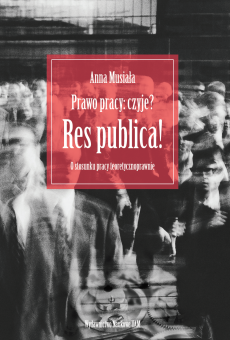Porozumienia zbiorowe jako źródło prawa pracy
Celem pracy jest wskazanie na granice prawotwórczej działalności partnerów społecznych, a wiec warunki dla ich kompetencji prawodawczej. Rozwiązanie tak ogólnie zarysowanego problemu wymaga odpowiedzi na szereg szczegółowych pytań, m.in. o kształt delegacji ustawowej dla tworzenia autonomicznych źródeł prawa pracy, jakimi są porozumienia zbiorowe. Wskazanie elementów normy kompetencji prawodawczej dla normatywnych porozumień zbiorowych pociąga za sobą ważki problem wypełnienia tych elementów konkretna treścią, m.in. konieczna jest odpowiedź na fundamentalne w tym zakresie pytanie o czy należy zostać przy dotychczasowym rozumieniu strony pracowniczej, po której występują zasadniczo wyłącznie związki zawodowe, zaś po stronie pracodawczej tradycyjnie rozumiany pracodawca bądź organizacja pracodawców.
The issue of concluding normative collective agreements is of great importance when looking from the perspective of one of the fundamental principles of the current Polish political system, that is, the state under the rule of law. This monograph is intended to show the limits of the normative character of collective agreements. The aim is to answer the question of when it can be stated that collective agreements are sources of law. Establishing boundaries of social partners' legislative activity has an influence on respecting values such as the principle of legal security, principle of legal certainty and, most of all, principle of legality.
| Detailed information | |
|---|---|
| Wprowadzenie |
Download file

|
| Spis treści |
Download file

|
|
|
|
| Publication Version | printed |
| Format | 17,0 x 24,0 |
| Language | polski |
| Title (EN) | Collective Agreements as a Source of Labor Law |
| Type of publication | Monografia |
| Edition | I |
| Series | Prawo nr 180 |
| ISSN | 0083-4262 |
| ISBN | 978-83-232-2566-9 |
| Number of pages | 254 |
| Number of publishing sheets | 18,00 |
| Type of binding | paperback |





